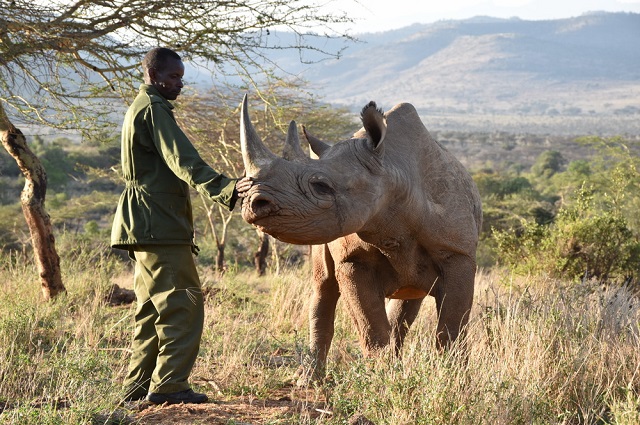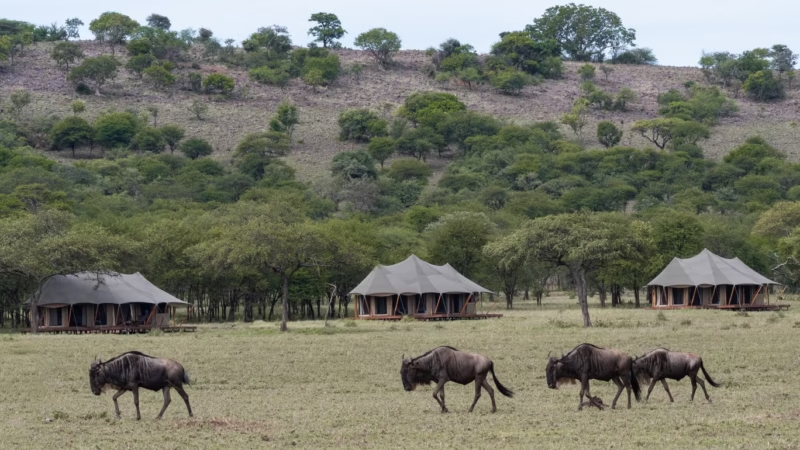
5 Safari Phrases Every First-Timer Should Know
August 6, 2025
Top 5 Mistakes Travellers Make on Their First Gorilla Trek
August 7, 2025Going on a safari is an unforgettable experience, offering rare opportunities to see wildlife in their natural habitat. But while the beauty of the African savannah, forests, and rivers may feel like an open adventure playground, it’s essential to remember that you’re a guest in the wild. Practicing proper safari etiquette helps protect wildlife, shows respect to local guides, and ensures a better experience for everyone on the tour.
Whether it’s your first safari or your tenth, these 7 do’s and don’ts will guide your behaviour in the bush and make sure you stay safe, responsible, and respectful throughout your journey.
1. DO: Listen to Your Guide
Your safari guide is your lifeline in the wild. They are trained professionals with years of experience tracking animals, reading the landscape, and navigating park rules.
Why it matters:
Listening to their instructions is not just about safety it’s also about getting the most out of your experience. A guide knows how close you can safely get to an animal, how to avoid disturbing wildlife, and where to find the most elusive species.
Pro tip: Always wait for your guide’s signal before standing, speaking loudly, or pointing. Even sudden movements can spook animals or irritate other travelers.
2. DON’T: Make Loud Noises
It’s tempting to gasp, cheer, or call out when you see a lion up close or witness a giraffe galloping through the bush. But loud noises can frighten wildlife and ruin the moment for everyone.
Why it matters:
Noise pollution can disturb animal behavior, especially during feeding, mating, or hunting. It also disrupts the peaceful, immersive nature of a safari.
Pro tip: Use a quiet voice when speaking, especially during game drives or nature walks. Save your excitement for photos or evening storytelling around the campfire.
3. DO: Respect Wildlife Boundaries
That lion may look relaxed, and the elephants may seem playful, but wild animals are unpredictable and territorial.
Why it matters:
Getting too close can lead to dangerous encounters for both visitors and animals. Respecting distance protects you and preserves the natural behavior of the animals.
Pro tip: Stay inside your vehicle unless told otherwise. On walking safaris, always remain behind the guide, and never try to touch or feed any animal, no matter how curious or calm it appears.
4. DON’T: Bring Plastic or Leave Trash
Many safari destinations are protected ecosystems, and even a single plastic bottle or wrapper can harm wildlife and pollute the environment.
Why it matters:
Animals can mistake plastic for food, leading to illness or death. Also, littering goes against the core principle of eco tourism.
Pro tip: Carry a reusable water bottle and snack containers. Use designated bins, and if there aren’t any nearby, take your trash back to camp to dispose of it properly.
5. DO: Dress Appropriately
Clothing on safari isn’t about fashion it’s about blending in, staying comfortable, and respecting local cultures.
Why it matters:
Neutral colors like khaki, olive, and tan help you avoid startling animals. Bright colors and white clothing stand out in the bush and can scare off wildlife.
Pro tip: Avoid camouflage clothing in some countries, where it is reserved for military use and can be illegal for civilians. Also, pack layers for chilly mornings and hot afternoons, and wear closed shoes for safety.
6. DON’T: Hog the Viewing Spot
When that once in a lifetime wildlife moment arrives like a leopard in a tree or a lion kill memotions can run high. But remember, everyone on the vehicle is just as eager to see.
Why it matters:
Blocking someone’s view, leaning out of the vehicle, or taking too long to snap photos can cause frustration and even accidents.
Pro tip: Take your turn, get your shot, then let others have their chance. Safari is a shared experience courtesy and patience go a long way.
7. DO: Support Local Conservation & Communities
Safaris are not just about seeing animals they’re also about supporting the ecosystems and people who protect them.
Why it matters:
Tourism funds conservation efforts, anti poaching patrols, education, and community development. By choosing ethical operators and buying local, you contribute directly to the sustainability of Africa’s wildlife heritage.
Pro tip: Stay in lodges that employ local staff, buy souvenirs from artisans, and consider donating to conservation initiatives in the region you’re visiting.
Final Thoughts: Leave Only Footprints, Take Only Memories
At its heart, safari etiquette is about respect for the wildlife, the environment, your guide, and fellow travelers. These do’s and don’ts may seem small, but they play a big role in ensuring the safety of all and the continued protection of East Africa’s extraordinary wilderness.
A well behaved traveler is not only safer but also more likely to enjoy deeper, more meaningful experiences. In the end, the most powerful safari moments often come not from the photos we take, but from the quiet observation, the respect we show, and the awe we feel in the presence of the wild.
Ready to experience safari the right way?
At Traford Safaris, we believe that responsible travel makes for the most memorable adventures. Our expert guides, eco friendly practices, and commitment to local communities ensure that your safari is both thrilling and ethical.
Book your next journey with Traford Safaris where every step into the wild is guided by respect.




